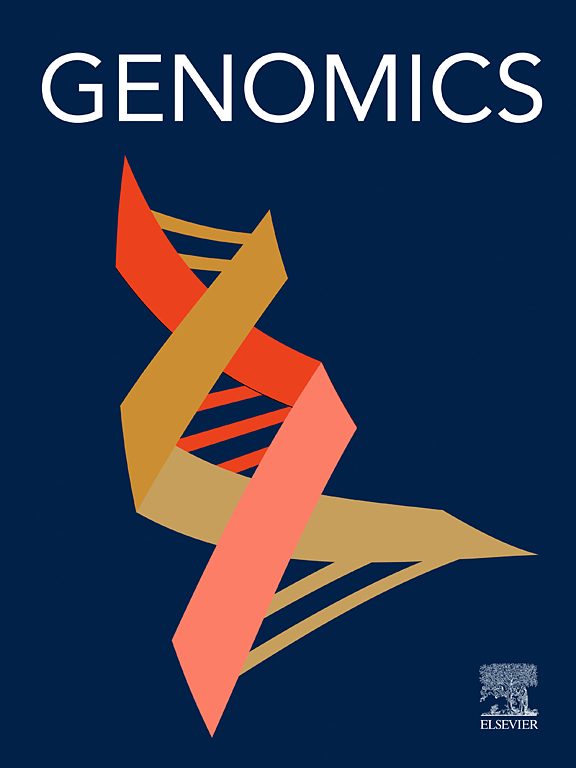The role of APOBEC mutagenesis in the progression and therapeutic guidance of pancreatic cancer
IF 3
2区 生物学
Q2 BIOTECHNOLOGY & APPLIED MICROBIOLOGY
引用次数: 0
Abstract
Background
APOBEC (apolipoprotein B mRNA editing enzyme, catalytic polypeptide-like) family-mediated mutagenesis is widespread in human cancers. However, we still have a limited understanding of the biological features and clinical relevance of APOBEC mutagenesis in cancer, particularly in pancreatic cancer.
Methods
In this study, we conducted a comprehensive analysis of various data, including whole-exome sequencing (WES), targeted next-generation sequencing (NGS), transcriptome analysis (both bulk RNA-seq and single-cell RNA-seq), immune profiling, immune checkpoint blockade (ICB) response, patient survival, and drug sensitivity. We used various bioinformatics and statistical methods to uncover the distributional features, microenvironmental changes, and clinical significance of APOBEC mutagenesis in pancreatic adenocarcinoma (PAAD).
Results
APOBEC mutagenesis significantly influenced mutation patterns in PAAD. Higher enrichment scores of APOBEC mutagenesis signature (APMs) were associated with survival prognosis, immune remodeling, and potential responses to immune checkpoint blockade (ICB) in PAAD patients. In pancreatic cancer, APOBEC3A and APOBEC1 played important roles in malignant progression and cell differentiation in the tumor microenvironment and mediated enhanced CAF-tumor cell communication in the microenvironment, while APMs were also involved in the formation of an immunosuppressive microenvironment in pancreatic cancer through multiple pathways. Additionally, we developed and validated a machine learning model related to APOBEC mutagenesis across various cohorts of PAAD to predict poor survival prognosis. We also conducted drug sensitivity analyses to identify irinotecan as the drug with the highest inhibitory effect on APMs. Subsequently, in vitro experiments verified that irinotecan significantly inhibited pancreatic tumor cell proliferation. Our findings showed that irinotecan significantly reduced the proliferation, metastasis, and glycolysis of pancreatic tumor cells. It also decreased the expression levels of activation markers in cancer-associated fibroblasts (CAFs), including CD73, ACTA2, and COL1A1. In vivo experiments demonstrated that irinotecan could remodel the immune microenvironment by inhibiting Tregs, and combined with Treg inhibitors, it could effectively reduce the tumor burden of PAAD.
Conclusion
Our study illustrated the characterization of APOBEC mutagenesis in multiple cancer types and highlighted its potential value as a prognostic and immunotherapeutic biomarker for PAAD, and finally demonstrated the effectiveness of irinotecan, an inhibitor of APMs, in vivo and in vitro experiments.
APOBEC突变在胰腺癌进展中的作用及治疗指导。
背景:APOBEC(载脂蛋白B mRNA编辑酶,催化多肽样)家族介导的突变在人类癌症中广泛存在。然而,我们对APOBEC突变在癌症,特别是胰腺癌中的生物学特征和临床相关性的了解仍然有限。方法:在本研究中,我们对各种数据进行了综合分析,包括全外显子组测序(WES)、靶向下一代测序(NGS)、转录组分析(包括大量RNA-seq和单细胞RNA-seq)、免疫谱分析、免疫检查点阻断(ICB)反应、患者生存率和药物敏感性。我们使用多种生物信息学和统计学方法揭示了APOBEC突变在胰腺腺癌(PAAD)中的分布特征、微环境变化和临床意义。结果:APOBEC突变显著影响PAAD的突变模式。较高的APOBEC突变特征(APMs)富集分数与PAAD患者的生存预后、免疫重塑和对免疫检查点阻断(ICB)的潜在反应相关。在胰腺癌中,APOBEC3A和APOBEC1在肿瘤微环境中的恶性进展和细胞分化中发挥重要作用,并介导微环境中ca -肿瘤细胞通讯增强,而APMs也通过多种途径参与胰腺癌免疫抑制微环境的形成。此外,我们开发并验证了一种与APOBEC突变相关的机器学习模型,用于预测各种PAAD患者的不良生存预后。我们还进行了药物敏感性分析,确定伊立替康是对APMs抑制作用最高的药物。随后,体外实验证实伊立替康显著抑制胰腺肿瘤细胞增殖。我们的研究结果显示伊立替康显著降低胰腺肿瘤细胞的增殖、转移和糖酵解。它还降低了癌症相关成纤维细胞(CAFs)中活化标记物的表达水平,包括CD73、ACTA2和COL1A1。体内实验表明伊立替康可通过抑制Treg重塑免疫微环境,与Treg抑制剂联合使用可有效减轻PAAD的肿瘤负担。结论:我们的研究阐明了APOBEC在多种癌症类型中的突变特征,突出了其作为PAAD预后和免疫治疗生物标志物的潜在价值,并最终证明了伊立替康(一种APMs抑制剂)在体内和体外实验中的有效性。
本文章由计算机程序翻译,如有差异,请以英文原文为准。
求助全文
约1分钟内获得全文
求助全文
来源期刊

Genomics
生物-生物工程与应用微生物
CiteScore
9.60
自引率
2.30%
发文量
260
审稿时长
60 days
期刊介绍:
Genomics is a forum for describing the development of genome-scale technologies and their application to all areas of biological investigation.
As a journal that has evolved with the field that carries its name, Genomics focuses on the development and application of cutting-edge methods, addressing fundamental questions with potential interest to a wide audience. Our aim is to publish the highest quality research and to provide authors with rapid, fair and accurate review and publication of manuscripts falling within our scope.
 求助内容:
求助内容: 应助结果提醒方式:
应助结果提醒方式:


